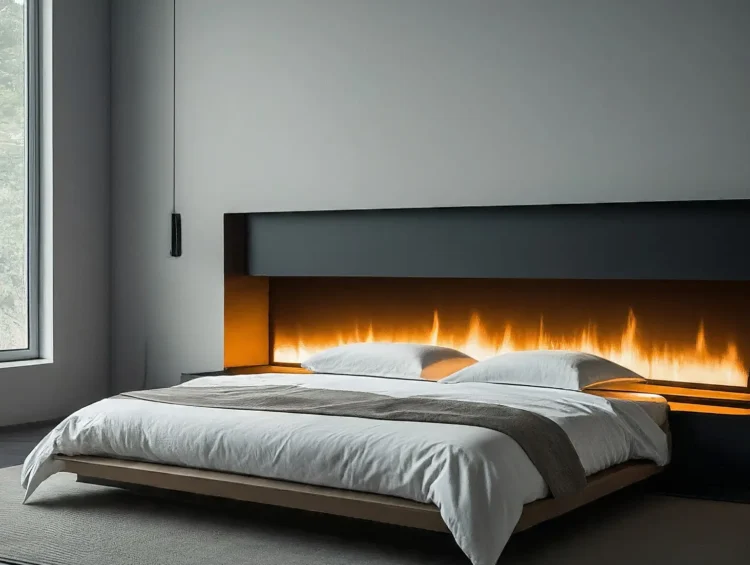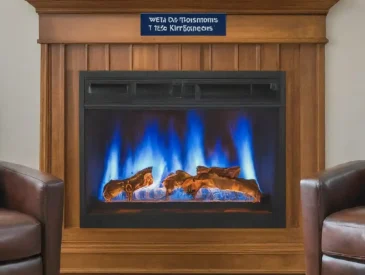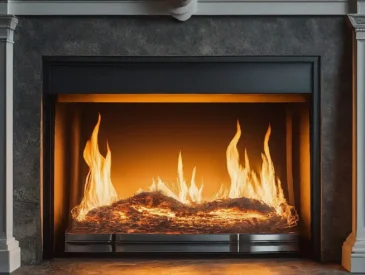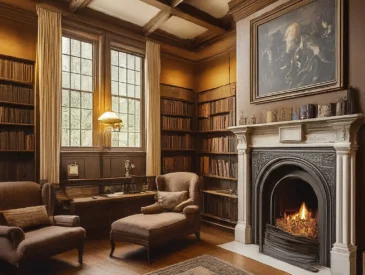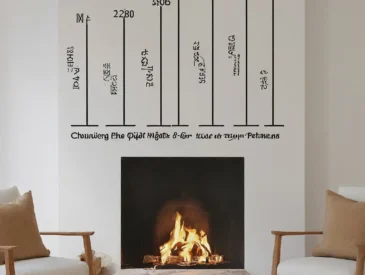Fireplaces have a special charm, emanating warmth and coziness. It’s not uncommon for individuals to find themselves a bit drowsy after basking in the glow of a crackling fire. But why does this happen?

This article delves into the intriguing reasons behind the calming effect of fireplaces. Additionally, we’ll touch on safety concerns related to dozing off near a lit fireplace.
Why Do Fireplaces Make You Feel Sleepy?
Fireplaces offer both heat and white noise, creating a soothing environment that relaxes our bodies. Simultaneously, our bodies work to maintain a comfortable temperature, contributing to the overall sense of relaxation and sleepiness.
Let’s explore the four key factors that contribute to the sleep-inducing effect of fireplaces:
Related: safe to sleep near fireplace
1. Heat Relaxes Your Muscles:
Fireplaces emit warmth, known for their muscle-relaxing properties. The heat increases muscle elasticity and expands blood vessels, aiding in the removal of toxins. This results in a state of deep relaxation and comfort, akin to the post-exercise calmness experienced after a warm bath or shower.
2. The Fire Creates White Noise:
In addition to the comforting warmth, the crackling sounds of the fire generate white noise. The rhythmic pop and hiss create a soothing auditory backdrop, effectively blocking out other ambient sounds. This cocoon of white noise induces a tranquil state of mind, conducive to sleep.
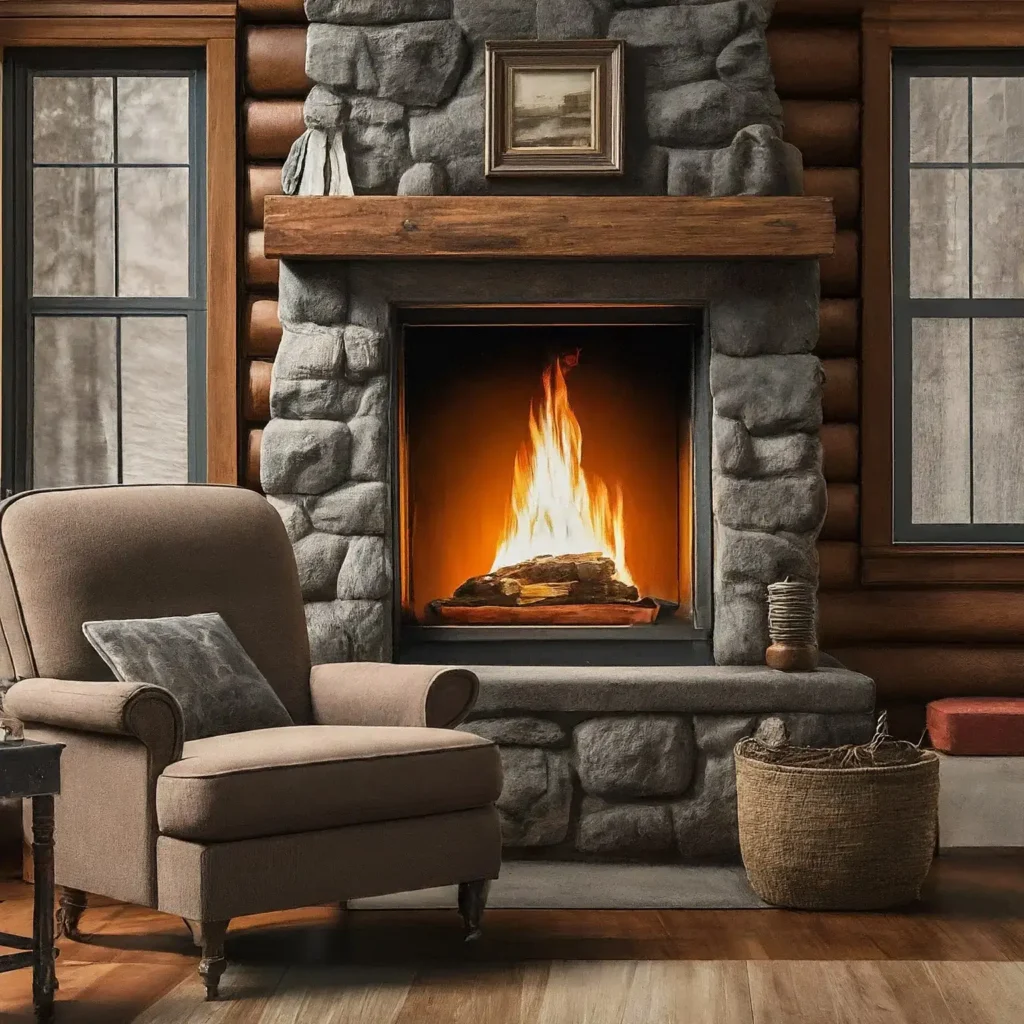
3. Your Body Regulates Temperature:
When exposed to the fireplace’s warmth, our bodies work to regulate temperature, expending energy in the process. While this effect is relatively subtle, when combined with other factors, it contributes to a sense of fatigue. The warmth and white noise further enhance this calming effect.
4. Evening Fireplace Rituals:
Fireplaces are typically kindled in the evening, aligning with our natural circadian rhythm. As daylight fades, our bodies naturally begin to wind down. The evening ambiance of a crackling fire complements this transition, creating an atmosphere conducive to relaxation and, ultimately, sleepiness.
Sleeping with a Fireplace On Safety Considerations:
It is unsafe to sleep with a wood-burning or gas fireplace active, as they pose fire hazards when unattended. Electric fireplaces, on the other hand, do not produce actual flames, making them a safe option for overnight use.
While the likelihood of incidents is low, precautions should always be taken to prevent potential dangers.
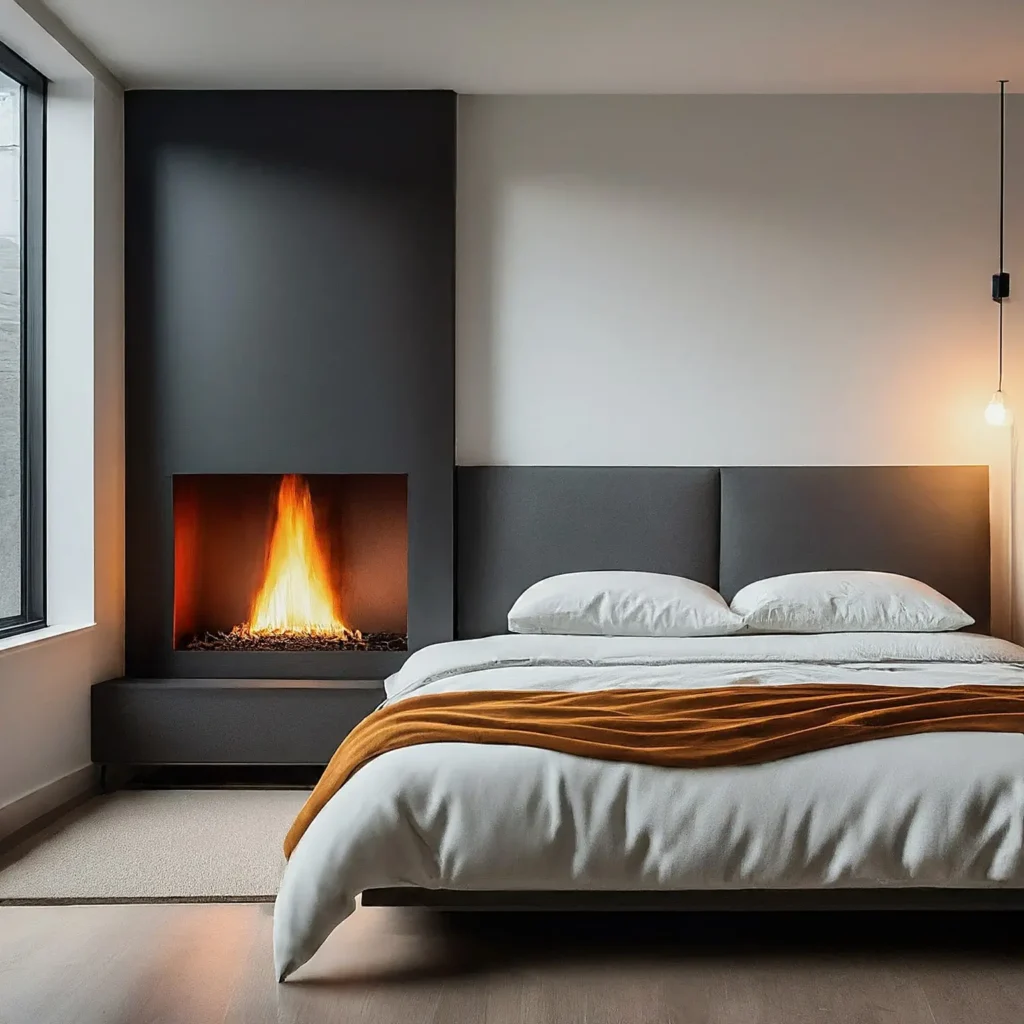
Conclusion: While fireplaces offer a delightful ambiance and warmth, it’s important to enjoy them responsibly. Embrace the cozy atmosphere they provide, but always prioritize safety. Understanding the factors that contribute to the sleep-inducing effect of fireplaces allows you to appreciate their calming influence while ensuring a secure and tranquil environment.

